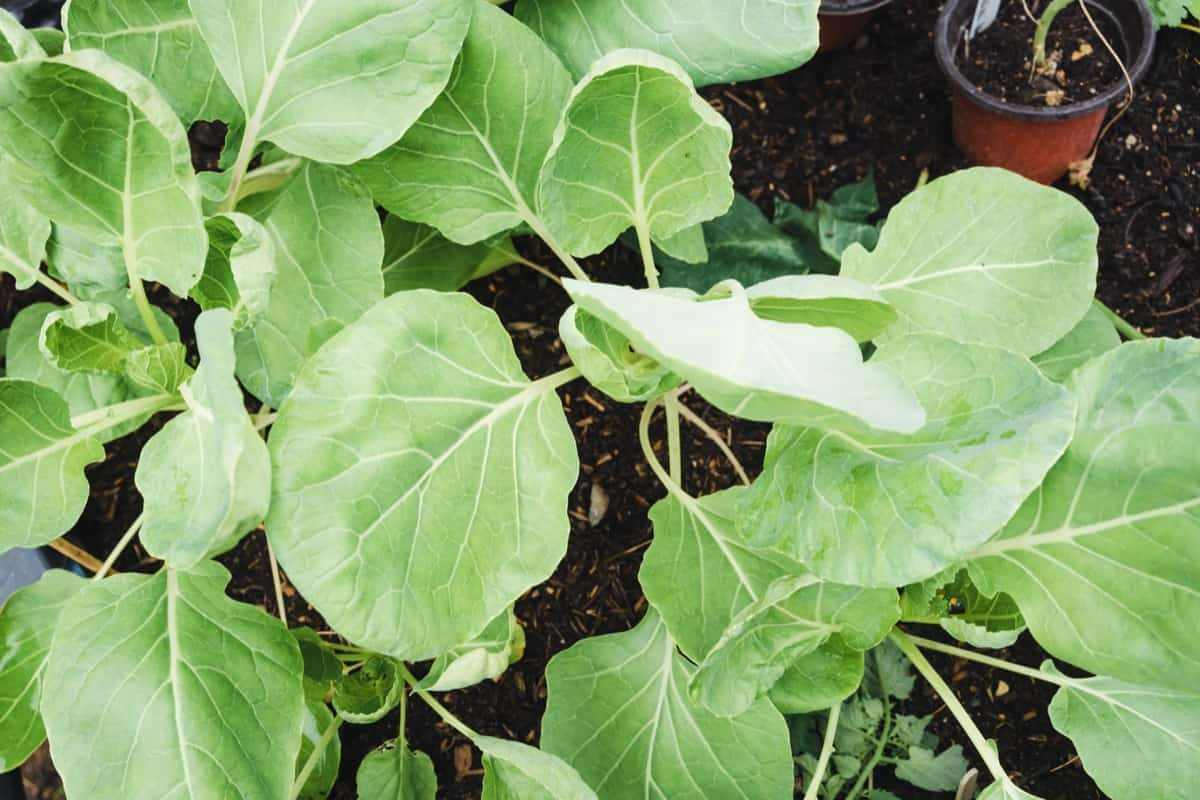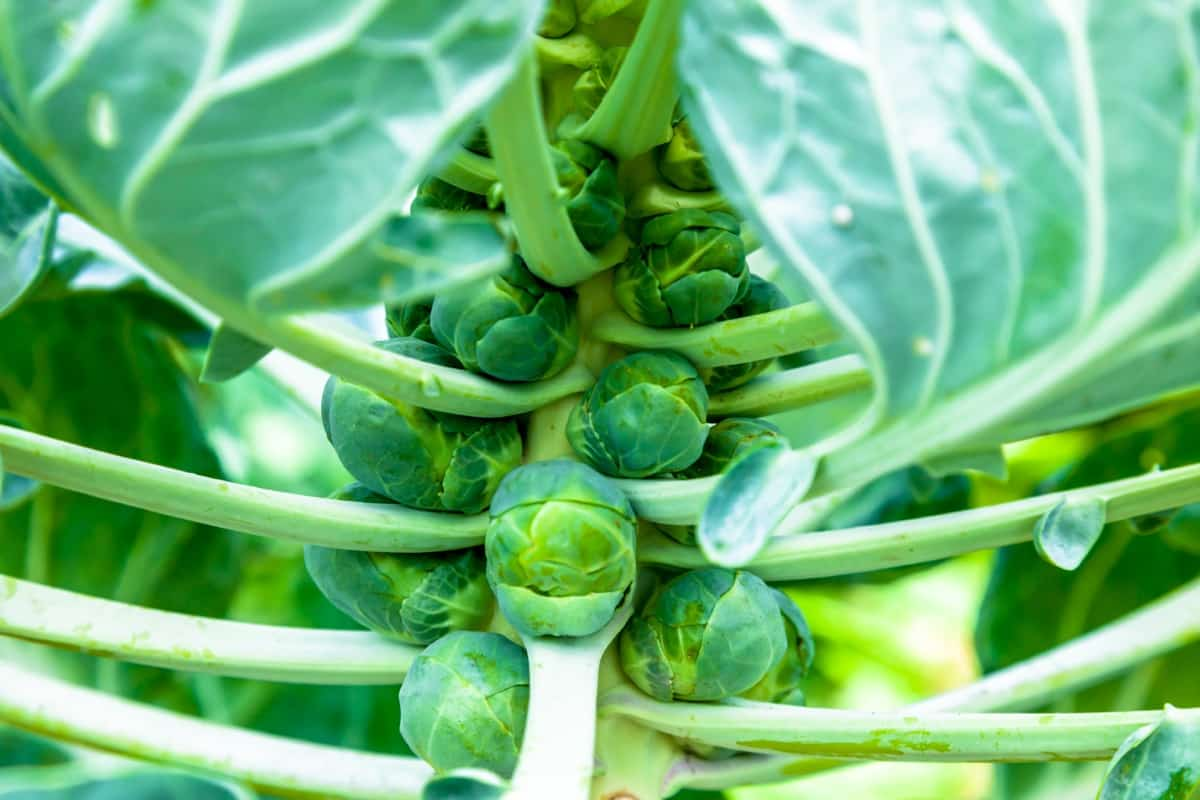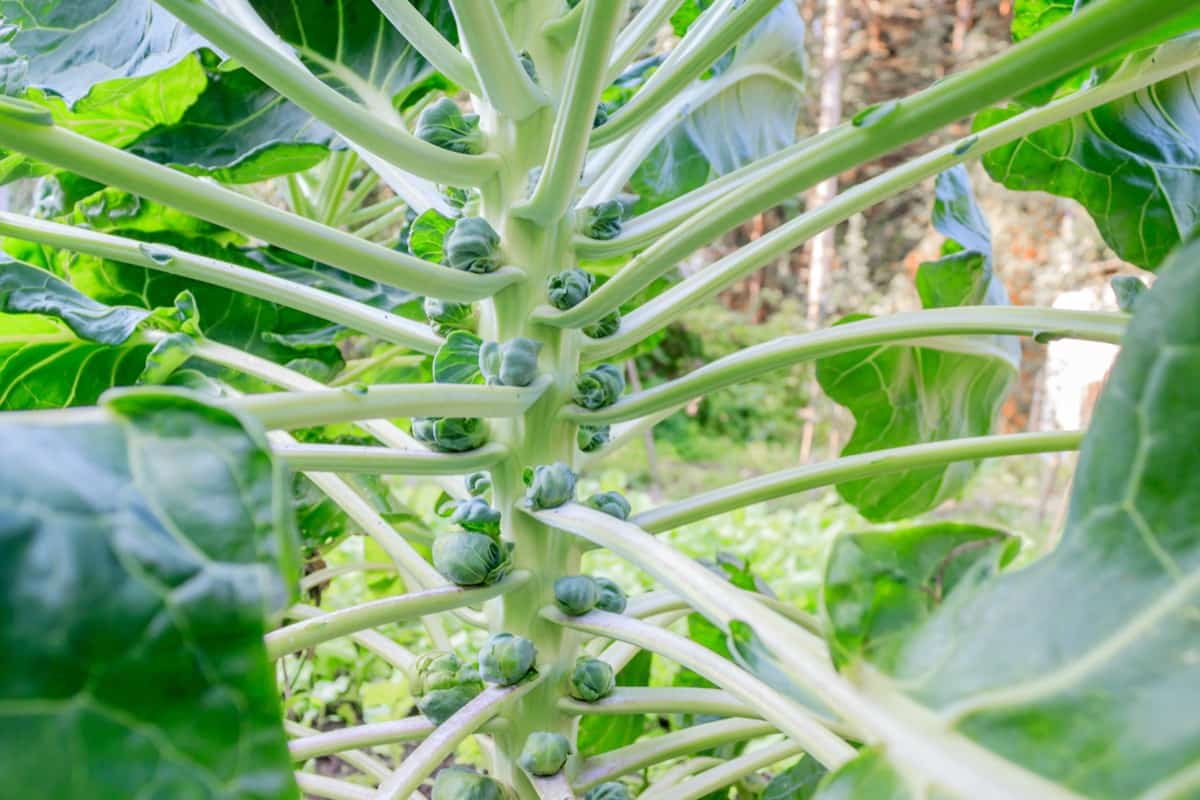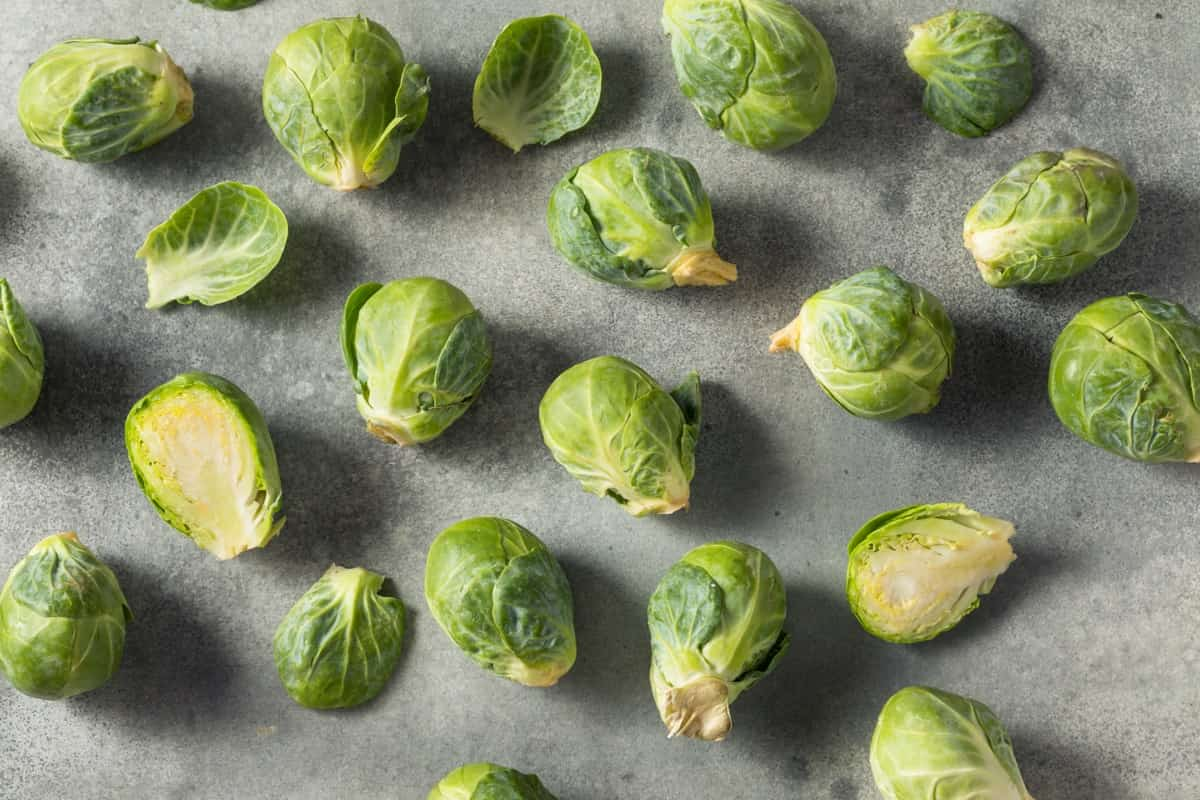The well-curated science of companion planting, an intrinsic part of sustainable agriculture, has benefited gardeners for centuries. Companion plants for Brussels sprouts enhance their growth, yield, and health. Among the best companion plants for Brussels, sprouts are aromatic herbs, diverse vegetables, and flowering plants that share their space and protect and nourish them.

They encourage pollination, deter pests, and improve soil fertility, making them a key element of organic gardening. But what grows well with Brussels sprouts, and what should you not plant next to them? This detailed exploration will highlight these vital aspects.
Brussels Sprouts Companion Plants
Benefits of Companion Plants for Brussels Sprouts in the Garden
Companion planting represents a clever cultivation strategy that emphasizes plants’ reciprocal relationships. Companion plants provide several benefits for Brussels sprouts. The most obvious is space utilization. Close planting allows for optimal use of garden space, and strategic selection can inhibit the growth of weeds.
Additionally, these plants help in pest management. Certain plant species emit fragrant compounds that naturally deter pests, while others attract beneficial insects to control harmful pest populations. For instance, mint deters cabbage worms, a common Brussels sprouts pest. Moreover, companion plants can improve soil fertility. Some, such as clover, fix nitrogen in the soil, boosting Brussels sprout growth. Finally, companion plants contribute to higher crop yields and the biodiversity of your garden, promoting a healthier and more resilient ecosystem.
Best Companion Plants for Brussels Sprouts to Deter Pests
While all companion plants for Brussels sprouts offer numerous benefits, some are especially effective at pest deterrence. Sage, dill, and thyme are Brussels sprout’s companion herbs known to repel pests. These herbs exude strong scents that deter common pests that would otherwise attack your Brussels sprouts.
Other companions include onions and garlic, which deter aphids, a significant Brussels sprout pest. Planting marigolds near Brussels sprouts can also deter nematodes in the soil. However, not all plants make good companions. Knowing the bad companion plants for Brussels sprouts, such as strawberries and pole beans, is crucial, which can attract pests that harm Brussels sprouts or compete for resources.
In case you missed it: 9 Common Problems With Brussels Sprouts Plants: Treatment and Solutions

Brussels Sprout Companion Plants for Improved Pollination
Pollination is another area where companion plants shine. Flowering plants like borage, lavender, or cosmos draw pollinators to your garden, indirectly aiding your Brussels sprouts’ growth. Similarly, plants with small flowers, such as sweet alyssum, can attract beneficial insects that encourage pollination. This well-planned companionship ensures that your Brussels sprouts receive the cross-pollination they need for optimal production.
Companion Plants for Brussels Sprout in Containers
Brussels sprouts can grow well in containers, and so can their companions. Certain herbs, including basil and parsley, thrive in container settings and can act as companion plants for Brussels sprouts. Not only do these herbs repel pests, but they can also add an aesthetic appeal to your container garden. Moreover, smaller vegetables like radishes and beets can share a container with Brussels sprouts, enhancing soil health and deterring pests while providing an additional harvest.
Companion Herbs for Brussels Sprouts in Organic Gardening
Organic gardening often incorporates Brussels sprout companion herbs to enhance growth and yield while keeping the process chemical-free. Dill, rosemary, and peppermint are strong-smelling herbs that deter many pests while attracting beneficial insects. These herbs can be interplanted with Brussels sprouts in your organic garden for a more harmonious growing environment. However, it’s worth noting that while these herbs can do wonders for your Brussels sprouts, they should still be grown according to their own specific needs.
Flowering Companion Plants for Brussels Sprouts to Attract Beneficial Insects
In addition to aiding in pollination, flowering companion plants for Brussels sprouts attract insects that prey on harmful pests. Nasturtiums, for example, lure aphids away from Brussels sprouts, reducing damage. Other flowering plants, such as yarrow and calendula, attract ladybugs and other predatory insects, providing a natural form of pest control. Integrating these plants into your Brussels sprouts garden creates a more balanced ecosystem that promotes overall plant health.
Companion Vegetables for Brussels Sprouts in Raised Beds
Raised bed gardening offers another opportunity to successfully implement companion planting with Brussels sprouts. Potatoes, cucumbers, and beets can be effective companions in raised beds, offering benefits from pest deterrence to improved soil health. These companion vegetables for Brussels sprouts also benefit from the raised bed system’s improved drainage and reduced soil compaction, which aids their root development and overall growth.
In case you missed it: Frequently Asked Questions About Growing Brussels Sprouts From Seed to Harvest

Companion Plants for Brussels Sprouts to Improve Soil Fertility
Certain plants can help improve soil fertility, thereby enhancing your Brussels sprouts’ overall growth and yield. Leguminous plants, such as peas and clover, fix nitrogen in the soil, which Brussels sprouts can utilize for their growth. Root crops like radishes and turnips can help to break up compact soil, improving its structure and allowing for better root penetration by your Brussels sprouts. Thus, integrating these plants into your garden can enhance the growth and yield of your Brussels sprouts.
Companion Plants Chart for Brussels Sprouts in the Garden
Having a chart can be handy when planning your Brussels sprouts companion planting. This chart should feature good companions like dill, sage, and thyme (for pest control), borage and lavender (for pollination), radishes and beets (for container gardening), and potatoes and cucumbers (for raised beds). Bad companion plants for Brussels sprouts, like strawberries and pole beans, should also be noted. This simple tool can greatly simplify your gardening process, ensuring your Brussels sprouts have the best companions to support their growth and yield.
Implementing Companion Planting in Your Garden
Implementing companion planting with Brussels sprouts in your garden requires a strategic approach. Initially, consider the space available, the type of gardening (raised beds, containers, or ground), and the specific pests common in your area. The selection of companion plants should hinge upon these factors. Understanding each plant’s requirements for light, water, and soil conditions is crucial to ensure that the companions you choose can thrive alongside your Brussels sprouts.
Layout planning is also key to maximizing the benefits of companion planting. Plan for the taller Brussels sprouts to provide shade for lower-growing companions and consider plant spread to ensure each plant has enough space. Don’t forget to incorporate flowering plants for pollinators and beneficial insects. Ultimately, the goal is to create a symbiotic environment where each plant supports the others.
In case you missed it: A Step-by-Step Guide for Growing Brussels Sprouts Microgreens: DIY in Simple Way from Seeds in Containers

Conclusion
Companion planting is a powerful tool in the gardener’s arsenal. By selecting the best companion plants for Brussels sprouts, you not only support the growth and yield of these healthy vegetables but also improve your garden’s overall health and resilience. You can deter pests, attract beneficial insects, boost soil fertility, and improve pollination, all through strategic plant selection and placement.
Companion planting can make your garden more visually appealing, offering a mix of shapes, sizes, and colors. It’s an approach that embraces nature’s intricacies, creating a balanced and productive growing environment. Ultimately, understanding what grows well with Brussels sprouts and what you should not plant next to them can dramatically impact your garden’s success.
- Feed Your Flock for Less: Top 10 Tips to Save on Chicken Feed
- Ultimate Guide to Ossabaw Island Hog: Breeding, Raising, Diet, and Care
- Hatching Answers: The Top 10 Reasons Your Chickens Aren’t Laying Eggs
- Eggs and Economics: Breaking Down the Cost of Raising Backyard Chickens
- Defend Your Greens: Proven Methods to Keep Iguanas Out of Your Garden
- Ultimate Guide to Cinnamon Queen Chicken: A Comprehensive Guide for Beginners
- Ultimate Guide to California Tan Chicken: Breeding, Raising, Diet, Egg-Production and Care
- Ultimate Guide to Marsh Daisy Chicken: Breeding, Raising, Diet, and Care
- 10 Types of Chicken Farming Businesses You Can Start for Profits